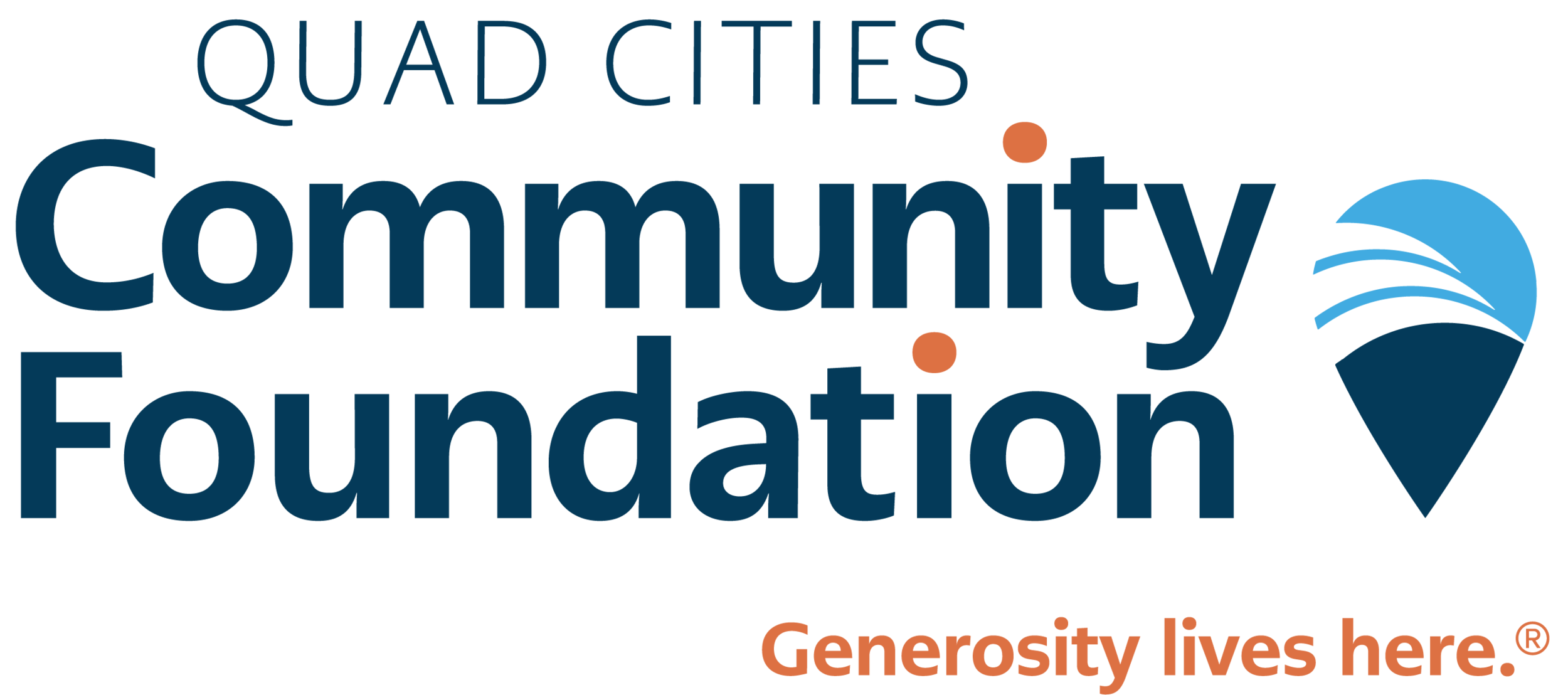The story of an incredible Quad Citizen… and a generous one too
Paul and Kathleen Freund in the Shona Sculpture Garden while on a trip to Zimbabwe.
Dr. Paul Freund remembers how he felt when his mother could not afford to do both—buy him a $5 pair of glasses and also the medical encyclopedia he so desperately wanted. “She told me I was going to have to have my eyes tested and if I needed glasses, we wouldn’t have enough for the book,” he said.
He needed glasses, so no book.
And then there was the time they didn’t have the money to join Boy Scouts. When it came time for the baseball team, she saved and saved to buy him a baseball mitt—long after the other boys had made fun of him for being poor. “My mother was ashamed she couldn’t give me more. I want to make sure my sense of generosity springs from that,” said Freund, who recently committed a portion of his estate to the Quad Cities Community Foundation.
Freund came to the Community Foundation as he began planning his estate with his attorney, who suggested that the Community Foundation was a great way to touch the causes—and Quad Cities community—important to him. “This is my legacy. It makes me feel comfortable knowing it can be used for children and education,” he said.
Freund’s wife of 34 years, Kathleen, shared his desire to give back to others. She passed away eight years ago. “My wife took on the challenge of living in a jungle right after we were married,” Freund said, of his time in Papua New Guinea in the 1970s. “Her father told her she’s never going to make it in the Peace Corps but I’d say what she did was a whole lot harder. I’m grateful I had a wife who was so supportive.”
His resume is an extensive synopsis of a life of service—of public health care work spanning continents and decades in project management, research, teaching and training in public health, international development and anthropology. He was just a young boy when he decided he wanted to become a doctor. After high school he served in the Navy before graduating from St. Ambrose University with a degree in psychology. He began graduate studies at the University of Iowa in anthropology and linguistics.
He taught at Cornell College while developing a research proposal to conduct a field study in Papau New Guinea. It was there that Paul and Kathleen lived for 14 months among the Kasua tribe. Back in the United States, he began a focus on alcohol studies among ethnic groups, attended John Hopkins University, and began working for the National Institute for Alcohol and Abuse. Shortly after earning another master’s degree, he accepted a contract to work in Zambia on a World Health Organization (WHO) project on the community response to alcohol problems.
Paul being presented with a traditional copper plaque of Zambia from the Ministry of Health during his farewell party.
Facing the prevalence of malnutrition, respiratory and diarrheal diseases, Freund worked side by side with officers from WHO and UNICEF to construct diarrheal treatment and training centers. During the next three decades, he worked on a wide-range of health care projects in Africa, including his work as deputy chief of party for a large-scale primary health care effort in the Southern Peoples Region of Ethiopia and a USAID project in Zambia that focused on maternal child health, HIV/AIDS, nutrition and de-worming.
Paul and Kathleen spent nearly 25 years in Africa, working alongside health care advisers, researchers and Peace Corps volunteers. He worked for more than five years as a teacher and researcher at the University of Zambia solely on local conditions and salary and Kathleen worked as a volunteer teacher for the Christian Council of Zambia teaching home craft skills to Zambian women to enable them to make a living.
Throughout his work and even in retirement here in the Quad Cities, Freund’s goal was the improvement of health—from policy-level to the community and personal level. “I want to encourage people to think of public health as a part of community organization,” he said. “Community development includes health issues, and education is the only way we’ll spread these kind of messages in not just Africa, but all over the world—including here at home.”
The Quad Cities Community Foundation, he said, does the very thing that he saw as crucial to any serious progress in international health care reform: collaboration. “We can accomplish more if we coordinate. There’s a lot of opportunity wasted when we don’t work together.”
And at the Community Foundation, he sees a place and people working together to transform the Quad Cities forever.
Freund said he is fortunate to be in a position now where he can commit to giving resources that help others. Sometimes his generosity harkens back to those childhood memories of living in poverty. A friend, who is also a retired submarine commander, recently mentioned that he wanted to support the local Boy Scouts. He wrote a check and gave it to his friend to donate. “They were all overjoyed,” he said. “Someone might say, ‘Well what does the Boy Scouts have to do with public health?’”
For Freund, “it’s about that boy who doesn’t have the money to buy the scarf and badge to join.”


